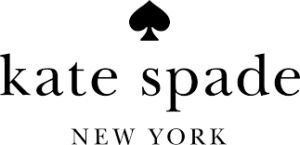Coach, the maker of luxury handbags and various other grippable accessories, announced that it will buy Kate Spade, a competitor in the luxury handbag arena. Both companies also sell clothing and other products, but they are probably best known for the bags.


According to reports in the press, Kate Spade is more popular with younger purchasers, partly because of its designs (variously described as quirky, preppy, and playfully sophisticated), but also because it offers occasional "flash" sales online, where you can satisfy your quirky-preppy-playfully sophisticated luxury handbag needs at deep discounts. Coach apparently intends to cut way back on the flash sales.
One analyst said the move reflects the "woes" of the industry, at least part of which come from reliance on the "beleaguered" department-store trade channel. Just reading about it is enough to make you want to drown your sorrows in some luxury leather goods. The companies also apparently have difficulty getting consumers to pay full price. Looking over the Coach website in particular, it's not hard to see why that might be a struggle. Both companies make some very attractive products, but their product lines in some cases, let's say, extend beyond the attractive. But they're not cheap, and at least to my eye, there is not a close correlation between price and attractiveness. I suppose people who like ugly handbags are also entitled to pay hundreds of dollars for one, and if Coach can get them to pay full price, more power to them.
The whole sector is a testament to the power of trademarks. That particularly applies to handbags, some of which seem to have been designed less for aesthetics and more for the effectiveness of conveying the brand name.
The announcement seems to have given Coach's stock a boost. It had been trading around $39/share before the announcement and jumped to around $45/share. Both companies are off from where they stood in the 2013-2014 period, but both have jumped with rumors and then actual news of the deal. It would be shocking if the rationale behind the acquisition did not involve use of the word "synergies," and it is certainly possible that the rationale is correct.
According to a release by Coach, the company plans to "create the first New York-based house of modern luxury lifestyle brands, defined by authentic, distinctive products and fashion innovation." This may be the heart of the deal: a plan to bring together a group of brands, each of which has substantial appeal, under one organization that can efficiently use its expertise in the luxury goods market. LVMH, which includes the Louis Vuitton, Moët, and Hennessy brands that give it its initials, along with others such as Christian Dior and Tag Heuer, has pursued that strategy. Judging from its stock price over the last 5 years, it has done so successfully. Coach would have a long way to go to match the LVMH stable of brands, but you have to start somewhere.
The lawyers at Trademarkology provide trademark registration services backed by the experience and service of one of the nation's oldest law firms. Click here to begin the process of protecting your brand name with a federally registered trademark.
The content of this article is intended to provide a general guide to the subject matter. Specialist advice should be sought about your specific circumstances.
